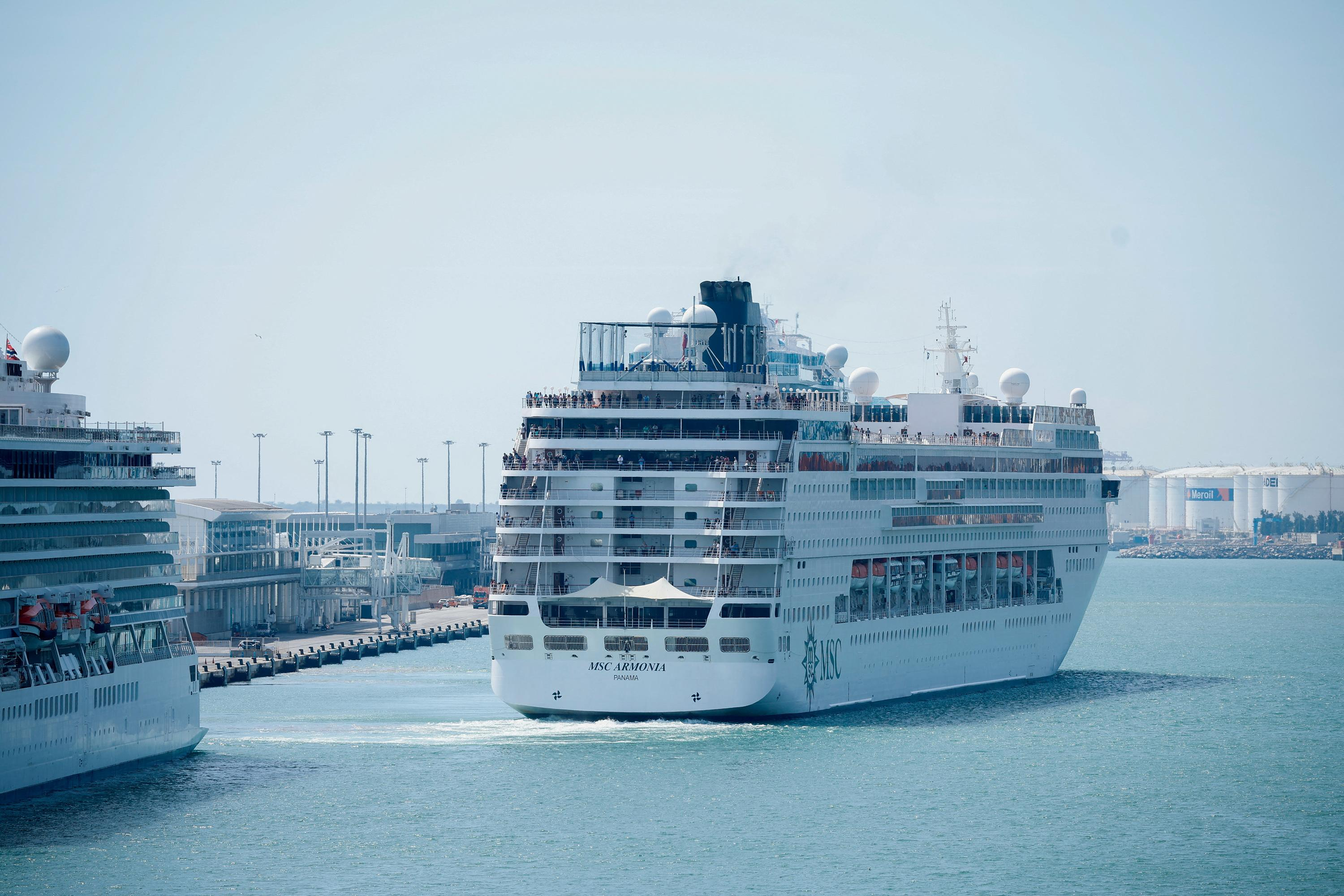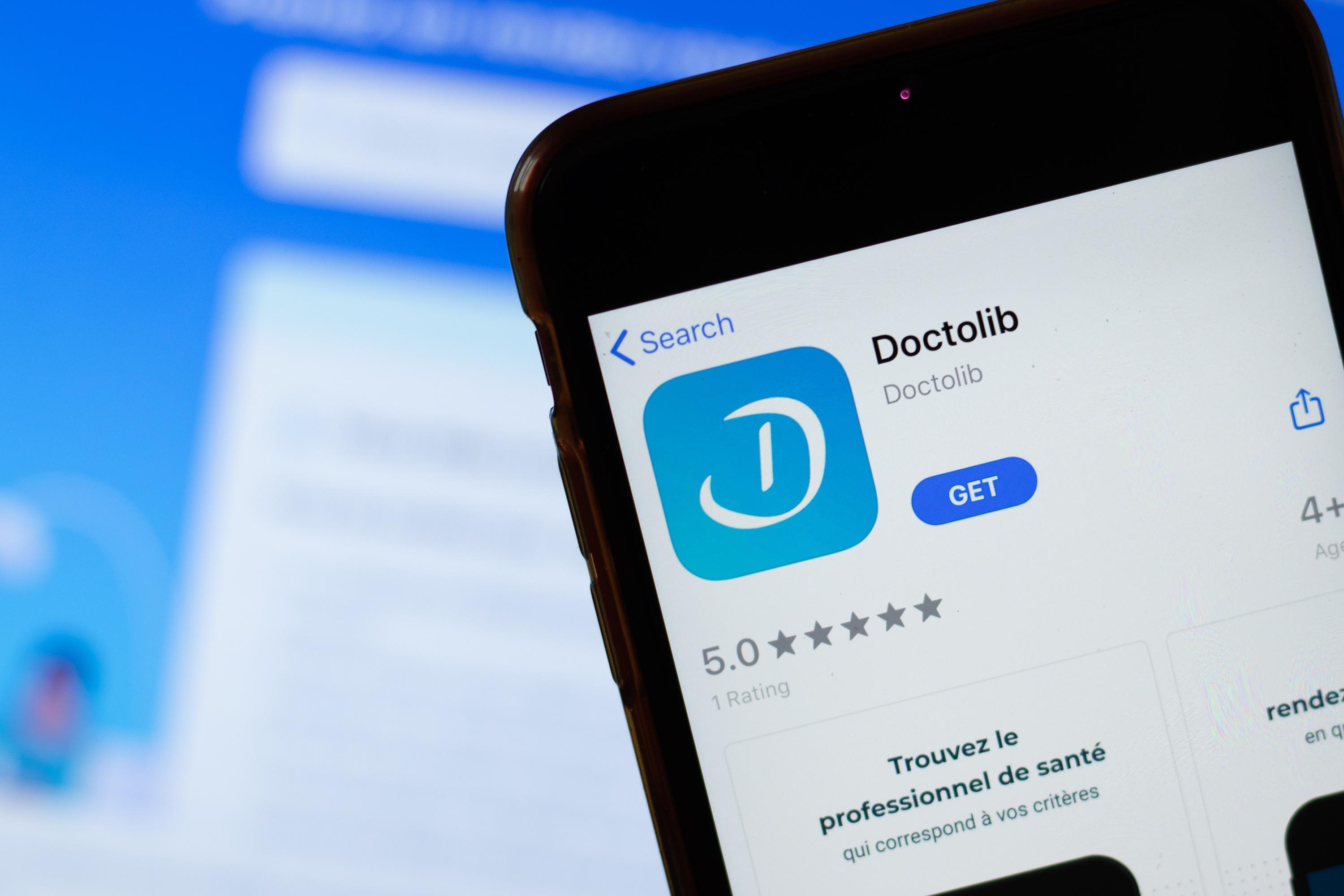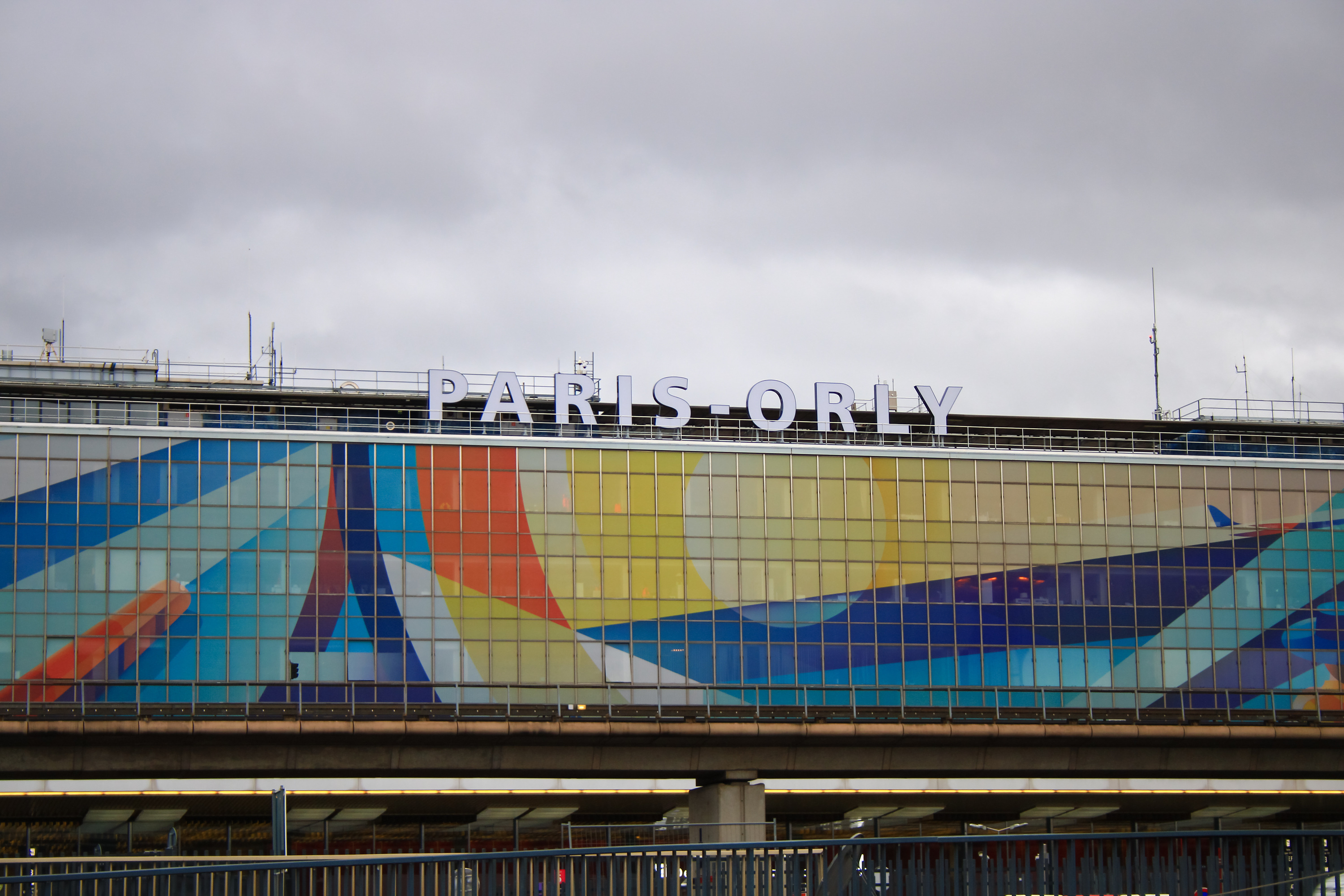Friedrich Merz and Daniel Caspary recently called for a “moratorium on burdens”: Because of the war of aggression against Ukraine, now is not the time for new EU legislative proposals that would increase the pressure on the European economy and small and medium-sized businesses. In this article, we would like to explain why the opposite is the case and provide four reasons why ambitious EU legislation will get us out of the crisis faster.
First, the two colleagues from the CDU are confusing cause and effect. One of the reasons why the current crises have reached such dramatic proportions is that in the past we did not push ahead with the green transformation of our economy with enough determination. The EU Green Deal is now more necessary than ever.
For years, the governments under Angela Merkel overslept the energy transition. The result: Our continued dependence on fossil fuels has triggered the current energy crisis. The Green Deal will take us out of this trap.
For years, conservatives have been pursuing an agricultural policy that, under the maxim “grow or soften”, has not only resulted in farm deaths, but also in the high use of pesticides, soil degradation and lower yields. The result: our dependence on soy imports for factory farming instead of real food sovereignty through regional value creation. This is exactly where the Green Deal comes in.
Therefore we are of the opinion: The rapid expansion of renewable energies, the ban on poisons, laws for clean soil, the criminalization of environmental crimes and laws for clean air are part of the solution, not the problem. The quoted motto "Go big on the big things, small on the small things" reveals what Merz and Caspary see as climate protection and the sustainable restructuring of our economy: as a nice-to-have when we have time for it.
The fight against the climate crisis is the central question for the future competitiveness of our economy, securing our prosperity and, yes, the survival of mankind. Especially in times of multiple crises, there can be no "business as usual". Now more than ever is the time to redouble our efforts, advance the Green Deal and make our continent carbon neutral a reality.
Secondly, we ask ourselves what the two CDU politicians actually mean by "small"? For example, we have just decided in the European Parliament on the uniform charging cable. In the categories in which Merz and Caspary think, that might be small. But if thousands of tons of electronic waste are saved and we reduce our dependence on autocracies for raw materials, such a law is an important building block in European strategic autonomy.
Is it a "small" law that can now be put off when we create the first global law to regulate social media platforms in the EU? If we fight hate, hate speech and disinformation online, where Putin's army of trolls is currently benefiting from non-existent rules? That is exactly the strength of the EU, that we are promoting the integration of our continent in small steps and solving cross-border problems.
Third, we find that our companies benefit when sustainability becomes the norm, when it becomes the foundation of their business model. If products and services Made in Europe stand for safety, quality and low emissions all over the world, they have a global competitive advantage, because "green" products are more and more in demand. It is our job as the EU to set the political framework and give our companies the legal certainty they need.
In the automotive industry, we didn't read the signs of the times early enough. This is our disadvantage today. Forward-looking rules in a market as large as the EU can set the tone worldwide and, precisely because of this, make our companies global frontrunners. And that's what we want to be in order to be competitive now, but also in the future.
More and more companies are already on this transformation path and we must support them in achieving our shared sustainability goals. More and more companies have been preparing for the Green Deal for years and want planning security – so it would be counterproductive to turn around now.
Fourth: The supply chain law and recently also the import ban on products from forced labor just proposed by the Commission are cited as a “moratorium on stress”. We think that's cynical. Poverty and the situation of workers in developing countries have deteriorated rapidly, especially during the pandemic.
There are now almost 28 million people in forced labor around the world. Do we really want to play off new rules for companies against the rights of these people? As the European Union, that cannot be our claim. Rather, our aim must be to see the connections: the climate crisis potentiates the other.
Anna Cavazzini is Chair of the Internal Market Committee of the European Parliament. Terry Reintke is leader of the Greens in the European Parliament.

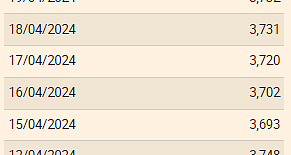 The Euribor today remains at 3.734%
The Euribor today remains at 3.734% Germany: the trial of an AfD leader, accused of chanting a Nazi slogan, resumes this Tuesday
Germany: the trial of an AfD leader, accused of chanting a Nazi slogan, resumes this Tuesday New York: at Columbia University, the anti-Semitic drift of pro-Palestinian demonstrations
New York: at Columbia University, the anti-Semitic drift of pro-Palestinian demonstrations What is Akila, the mission in which the Charles de Gaulle is participating under NATO command?
What is Akila, the mission in which the Charles de Gaulle is participating under NATO command? What High Blood Pressure Does to Your Body (And Why It Should Be Treated)
What High Blood Pressure Does to Your Body (And Why It Should Be Treated) Vaccination in France has progressed in 2023, rejoices Public Health France
Vaccination in France has progressed in 2023, rejoices Public Health France Food additives suspected of promoting cardiovascular diseases
Food additives suspected of promoting cardiovascular diseases “Even morphine doesn’t work”: Léane, 17, victim of the adverse effects of an antibiotic
“Even morphine doesn’t work”: Léane, 17, victim of the adverse effects of an antibiotic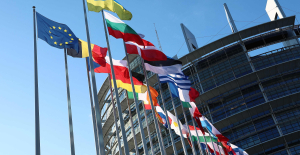 MEPs validate reform of EU budgetary rules
MEPs validate reform of EU budgetary rules “Public Transport Paris 2024”, the application for Olympic Games spectators, is available
“Public Transport Paris 2024”, the application for Olympic Games spectators, is available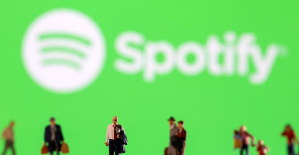 Spotify goes green in the first quarter and sees its number of paying subscribers increase
Spotify goes green in the first quarter and sees its number of paying subscribers increase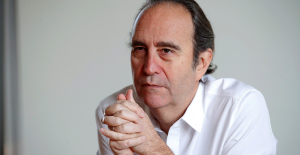 Xavier Niel finalizes the sale of his shares in the Le Monde group to an independent fund
Xavier Niel finalizes the sale of his shares in the Le Monde group to an independent fund Owner of Blondie and Shakira catalogs in favor of $1.5 billion offer
Owner of Blondie and Shakira catalogs in favor of $1.5 billion offer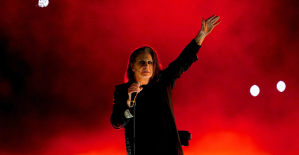 Cher et Ozzy Osbourne rejoignent le Rock and Roll Hall of Fame
Cher et Ozzy Osbourne rejoignent le Rock and Roll Hall of Fame Three months before the Olympic Games, festivals and concert halls fear paying the price
Three months before the Olympic Games, festivals and concert halls fear paying the price With Brigitte Macron, Aya Nakamura sows new clues about her participation in the Olympics
With Brigitte Macron, Aya Nakamura sows new clues about her participation in the Olympics Skoda Kodiaq 2024: a 'beast' plug-in hybrid SUV
Skoda Kodiaq 2024: a 'beast' plug-in hybrid SUV Tesla launches a new Model Y with 600 km of autonomy at a "more accessible price"
Tesla launches a new Model Y with 600 km of autonomy at a "more accessible price" The 10 best-selling cars in March 2024 in Spain: sales fall due to Easter
The 10 best-selling cars in March 2024 in Spain: sales fall due to Easter A private jet company buys more than 100 flying cars
A private jet company buys more than 100 flying cars This is how housing prices have changed in Spain in the last decade
This is how housing prices have changed in Spain in the last decade The home mortgage firm drops 10% in January and interest soars to 3.46%
The home mortgage firm drops 10% in January and interest soars to 3.46% The jewel of the Rocío de Nagüeles urbanization: a dream villa in Marbella
The jewel of the Rocío de Nagüeles urbanization: a dream villa in Marbella Rental prices grow by 7.3% in February: where does it go up and where does it go down?
Rental prices grow by 7.3% in February: where does it go up and where does it go down? Europeans: “All those who claim that we don’t need Europe are liars”, criticizes Bayrou
Europeans: “All those who claim that we don’t need Europe are liars”, criticizes Bayrou With the promise of a “real burst of authority”, Gabriel Attal provokes the ire of the opposition
With the promise of a “real burst of authority”, Gabriel Attal provokes the ire of the opposition Europeans: the schedule of debates to follow between now and June 9
Europeans: the schedule of debates to follow between now and June 9 Europeans: “In France, there is a left and there is a right,” assures Bellamy
Europeans: “In France, there is a left and there is a right,” assures Bellamy These French cities that will boycott the World Cup in Qatar
These French cities that will boycott the World Cup in Qatar Serie A: Bologna surprises AS Rome in the race for the C1
Serie A: Bologna surprises AS Rome in the race for the C1 Serie A: Marcus Thuram king of Italy, end of the debate for the position of number 9 with the Blues?
Serie A: Marcus Thuram king of Italy, end of the debate for the position of number 9 with the Blues? Milan AC-Inter Milan: Thuram and Pavard impeccable, Hernandez helpless… The tops and flops of the derby
Milan AC-Inter Milan: Thuram and Pavard impeccable, Hernandez helpless… The tops and flops of the derby Ligue 2: Auxerre leader, Bordeaux in crisis, play-offs... 5 questions about an exciting end of the season
Ligue 2: Auxerre leader, Bordeaux in crisis, play-offs... 5 questions about an exciting end of the season




